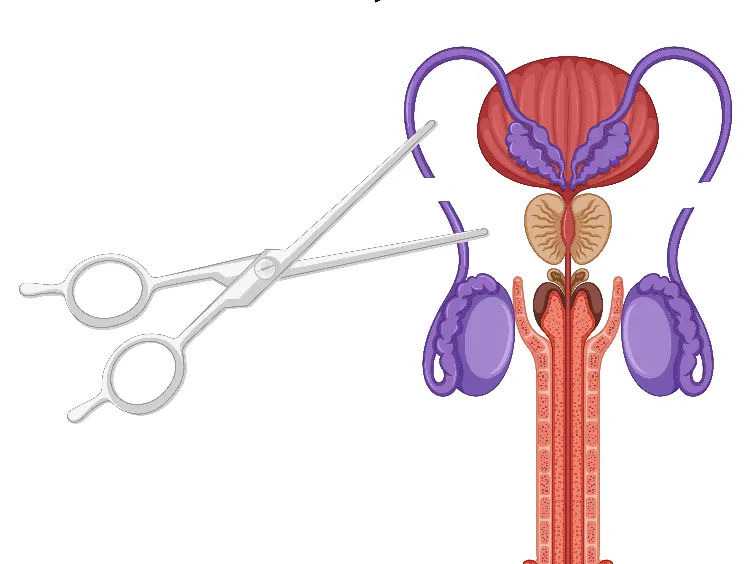Vasectomy is a method of male birth control that stops sperm from reaching the semen. The sperm tubes are cut and sealed to do this. Vasectomy has a low risk of complications and is frequently done under local anaesthetic in an outpatient setting.
You must be certain that you don't want to parent children in the future before having a vasectomy. Although vasectomy reversals are possible, this kind of male birth control should be regarded as permanent.

For men who are confident they will never have children, a vasectomy provides a secure and reliable form of birth control. The effectiveness of vasectomy in preventing pregnancy is almost 100%.
An outpatient procedure, a vasectomy has a low risk of complications or negative side effects. Vasectomy costs are far lower than those associated with female sterilisation (tubal ligation) or the long-term expense of birth control for women.
You won't need to use birth control before intercourse, such as a condom if you have a vasectomy. The vasectomy does not provide any protection against STDs.
Your doctor will want to consult with you to ensure that a vasectomy is an appropriate method of birth control for you before performing it. Be ready to discuss the following during the first consultation (appointment).
A vasectomy is generally performed under local anaesthetic at a doctor's office or surgical facility, meaning you'll be awake and receive medication to numb the surgical region. Typically, a vasectomy procedure lasts between 10 and 30 minutes.
A vasectomy doesn't offer immediate pregnancy prevention. Until your doctor says there is no sperm in your semen, use a different method of birth control. You must wait several months or longer and ejaculate 15 to 20 times or more to remove all sperm from your semen before engaging in unprotected sex.
Six to twelve weeks after surgery, most doctors perform a follow-up semen examination to make sure there are no sperm still present. To evaluate your sperm, your doctor will need some samples from you. Your doctor will have you masturbate, ejaculate into a container, or use a specific condom without lubricant or spermicide to catch semen during sexual activity in order to obtain a sperm sample. The presence of sperm is then determined by microscopically examining your semen.
A vasectomy is a reliable method of birth control, but it won't shield you or your partner from STIs like chlamydia or HIV/AIDS. Therefore, even after a vasectomy, if you are still in danger of contracting an STD, you should use other kinds of protection like condoms.
You shouldn't get a vasectomy if you have a testicular illness or chronic testicular pain.
The possibility that you might later decide on wanting to father a kid is a potential issue with vasectomy. Your vasectomy might be reversible, but there is no assurance it will be successful. Reversal surgery is more difficult than vasectomy, can be costly, and occasionally is futile.
Additional methods, such as in vitro fertilisation, are also an option. These methods are, however, expensive and occasionally ineffective.
The majority of men who undergo a vasectomy experience no adverse effects at all, and serious complications are quite uncommon.
Following-surgery side effects may include:
Many men think that getting a vasectomy may result in major issues, but these worries are false. A vasectomy won't, for instance: